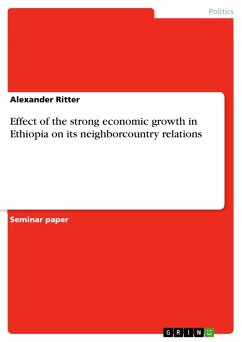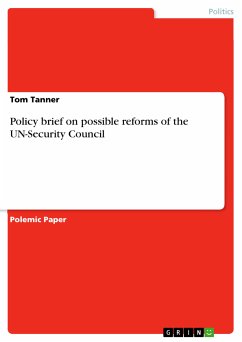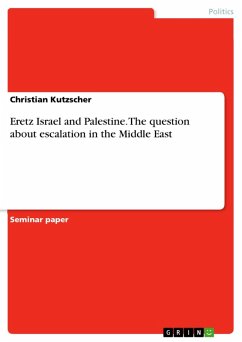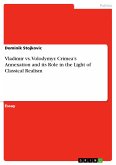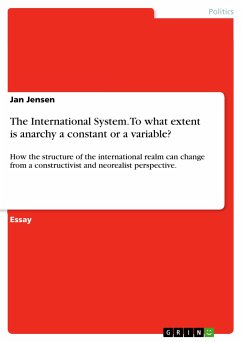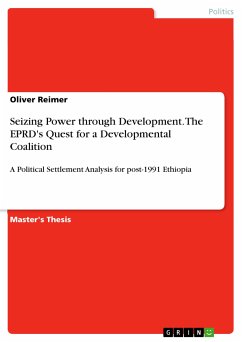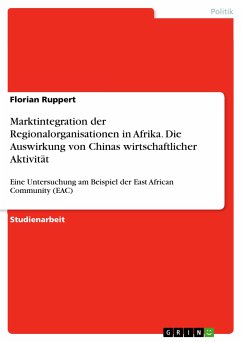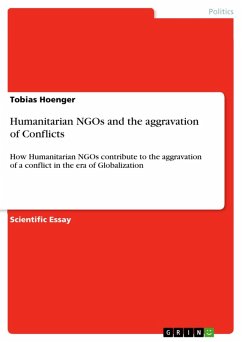Seminar paper from the year 2016 in the subject Politics - Region: Africa, grade: 2,0, University Witten/Herdecke (Wirtschaftswissenschaften), course: Comparative Analysis of Foreign Policies, language: English, abstract: This essay analyses and interprets changes in foreign relations between Ethiopia and its neighbor states dependent on Ethiopia's strong economic growth in recent years. The author bases his analysis on the rational-actor model of foreign policy analysis. Ethiopia's economic growth is strongly tied to its investments in agriculture and electricity from hydropower, which not only creates opportunities for the region but also causes some negative externalities. The treat of water deficiency is particularly high for Egypt, which largely depends on the waters of the Nile, with its supply being threatened by the completion of the Grand Ethiopian Renaissance Dam (GERD) in 2017. Water politics with regards to foreign policy in addition to domestic conflict potentials are the most significant political challenges for Ethiopia today. The rational-choice model will help to identify these challenges in greater detail and country-specifically and will help to provide solutions for informed decision-making.
Dieser Download kann aus rechtlichen Gründen nur mit Rechnungsadresse in A, B, BG, CY, CZ, D, DK, EW, E, FIN, F, GR, HR, H, IRL, I, LT, L, LR, M, NL, PL, P, R, S, SLO, SK ausgeliefert werden.

